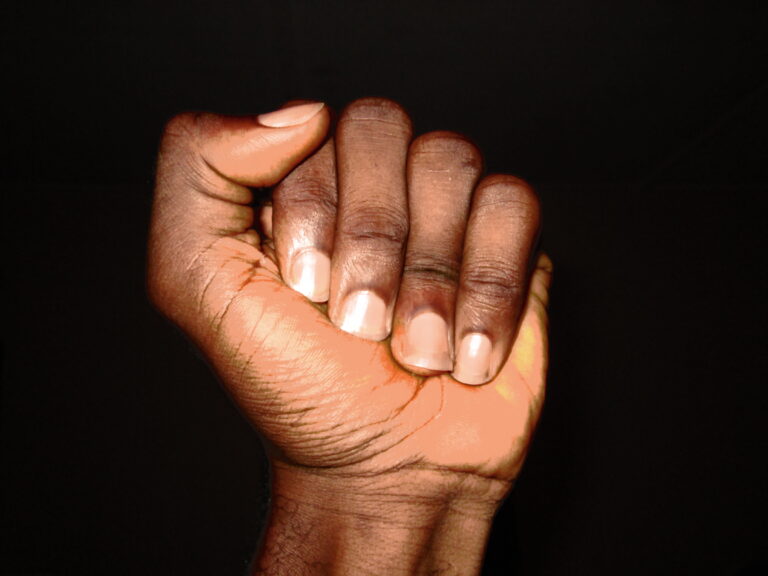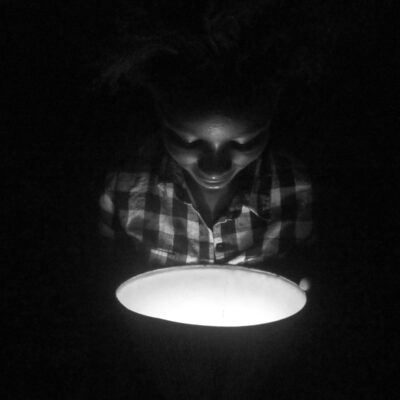The sky seemed to have been cleansed by the first rain of the year because its refreshing blue colour was devoid of dark clouds of uncertainty. What drew my attention to the sky was a white stripe across it which stretched like white chalk marks made by a giant finger. It was made by a moving rocket! A rocket!!
The funny thing about life is that no matter how grown we think we have become, there is still a child in all of us; and there are moments when the child in us surfaces, breaking free from the life of caged emotions adulthood often is.
So I found myself almost raising my hand to wave at the rocket the way we always do when we were kids. Those days, we went as far as imagining the planet the rocket was heading to and even gave names to the supposed astronauts on board.
Why were rockets so special when and where I grew up? Well, most smart children then dreamt of being “Scientists” when they grew up. We were told that “scientists” were not people who just worked to be rich, but they made “discoveries” and “inventions” that solved problems. We dreamt on and even argued about the type of “scientists” we would become.
Looking back, I wonder if we dreamt too big by hoping to become astronauts and physicists and astronomers. Interestingly, these were not mere dreams of making names for ourselves that generations would remember, but a realization by young minds that the challenges of the world are collectively faced and must be collectively solved.
Well, we did not become “scientists” and many who still held on to those dreams had them shattered. Our initial impediment was that we used syllabuses and equipment that still tried to prove that “what goes up must come down” when the world has since gone past that stage of basic scientific probing.
Then there were teachers with Notes of Lessons inherited from their grandfathers, still teaching that there are 9 planets in our solar system. These do not research the topics they teach or develop themselves. Most earn very little, and teach, not because they are passionate about it, but because they had jobs to keep.
My major concern is the public educational system. I am told that there were days in this country when public schools were about the best, when there were specialized post-primary schools that produced technicians in various fields, when students were engaged in projects and researches that solved problems. Today, most students in our schools merely attend schools to gain admission into the university; those in the university attend the university merely to obtain a degree, with the belief that a degree is needed for employment. If they are lucky to get a job, then they will spend what they earn to pay for solutions to their local problems, solutions often provided by the works of primary school pupils abroad.
While every society have people who go to school to earn a living, special attention is often paid to research and technological development. Surprisingly, in developed societies, people don’t have degrees the way we do. One must really be some sort of scholar or passionate about a field to have a Masters or Doctorate. In Nigeria, obtaining a Masters and Ph.D. after graduation may be used to determine the number of years one waited before being employed.
Our deficiency is not just in the quality of education, but also in the ‘quantity’. For instance, in the town where I was born and raised, all the public primary and secondary schools were established before my birth; no single public school has been established in over two decades despite the steady population growth. As a result, schools are crowded, teachers are insufficient and the structures are dilapidated.
Worthy of commendation are students that thrive in competitions despite these limitations, but I have seen too many of these unique ideas die, not because they are not economically viable, but because possible sponsors don’t see the faces of these young ones as being commercially viable or their ideas worthy of a popularity stunt. I don’t want to talk about those JETS and Science clubs, or quiz competitions we engaged in, because I expect very little from a country that is fast becoming a “ready-made” society. The university system is no different.
What do students really work on as projects? Many times, they are stooges of their lecturers, helping them do their own projects, or write articles for them to publish in journals and be in line to be professors, people who profess or pretend to be what they actually are not.
A few years later when one visits those departments, there will be project reports left out in the rain, and project works that are left to rot.
These works were just academic exercises considered unworthy to be developed upon, gloss-less trophies, useless monuments …yet, in these heaps of ruins lie our automobiles, power solution, ideas for economic diversification, and even rockets!
I have come to believe that making rockets is… erhmmm… rocket science, but making matches, or pencils or toothpicks is not.
I felt I was alone in this thought until I decided to ask two colleagues what they will like to be changed about our educational system, it was as if I ignited a fire. From the missiles they fired, two things stood out for me. One is that the syllabus should be changed as a lot of things taught in the university leave students unfocused, turning them to ‘jacks of all trades and masters of none’.
They are practicing their professions now, but one of the respondents felt most of the things taught in the university was “useless” and that it was as if the educational system did not expect graduates to practice their profession but fit in anywhere work is available.
The other suggestion was about projects. They felt projects should be specific, a particular thing assigned to a student or group of students from their first year, and by their final year, they could either perfect the idea, or leave the next generation of students to continue the work.
They also felt that projects should be aimed at solving problems faced either by the society or industries.
So, I stared at that rocket and the dreams of childhood returned to me, memories of the days that I would say “I want to be a scientist when I grow up”, but the white lines on the sky started fading, and so did the dream…

(by Effiong Samuel. Published on thesheet.ng)
Your support is appreciated
I’m sure you enjoyed your experience here and would like to make a kind donation to me. Thank you, in advance!

